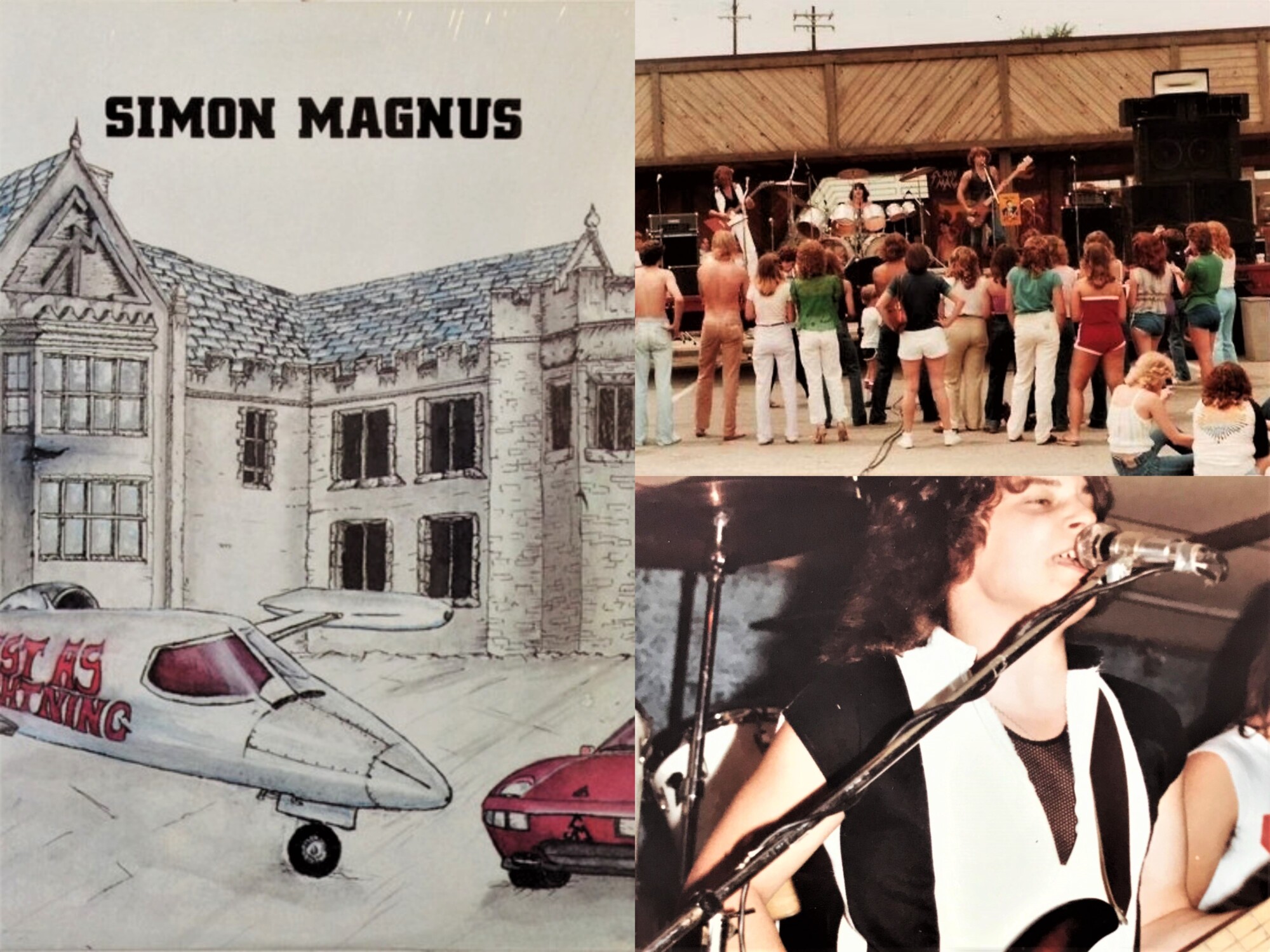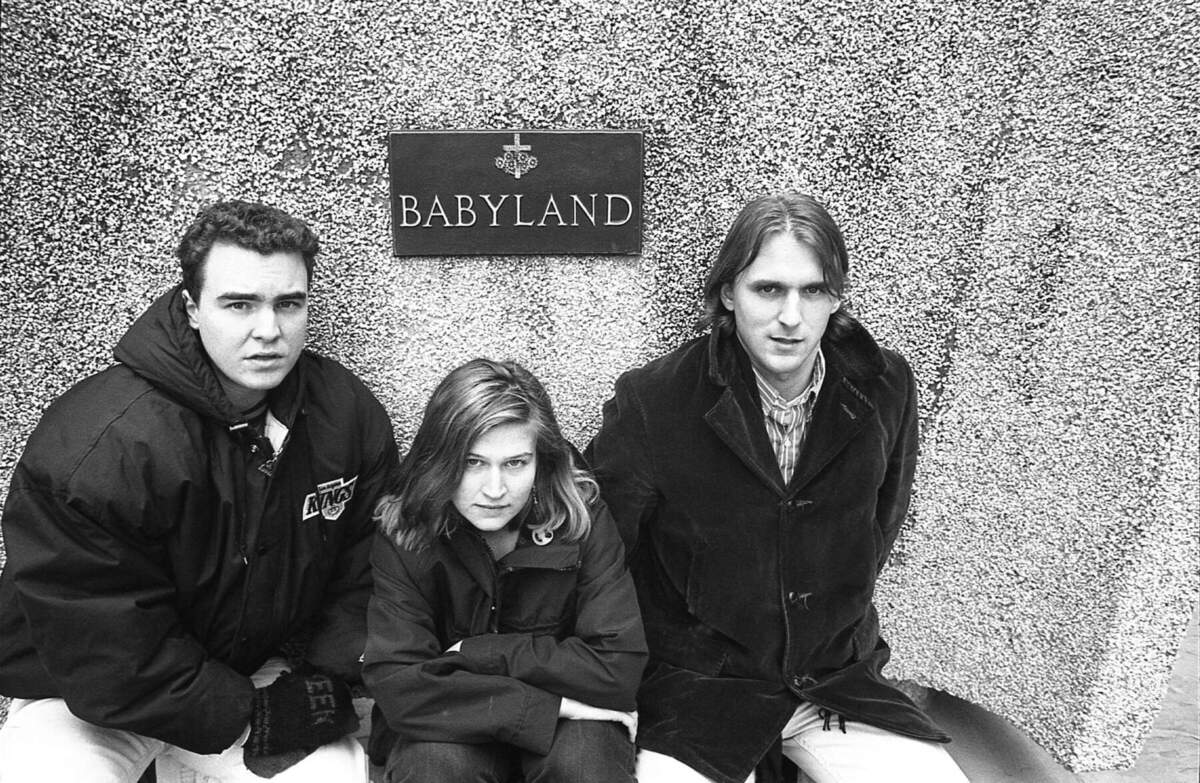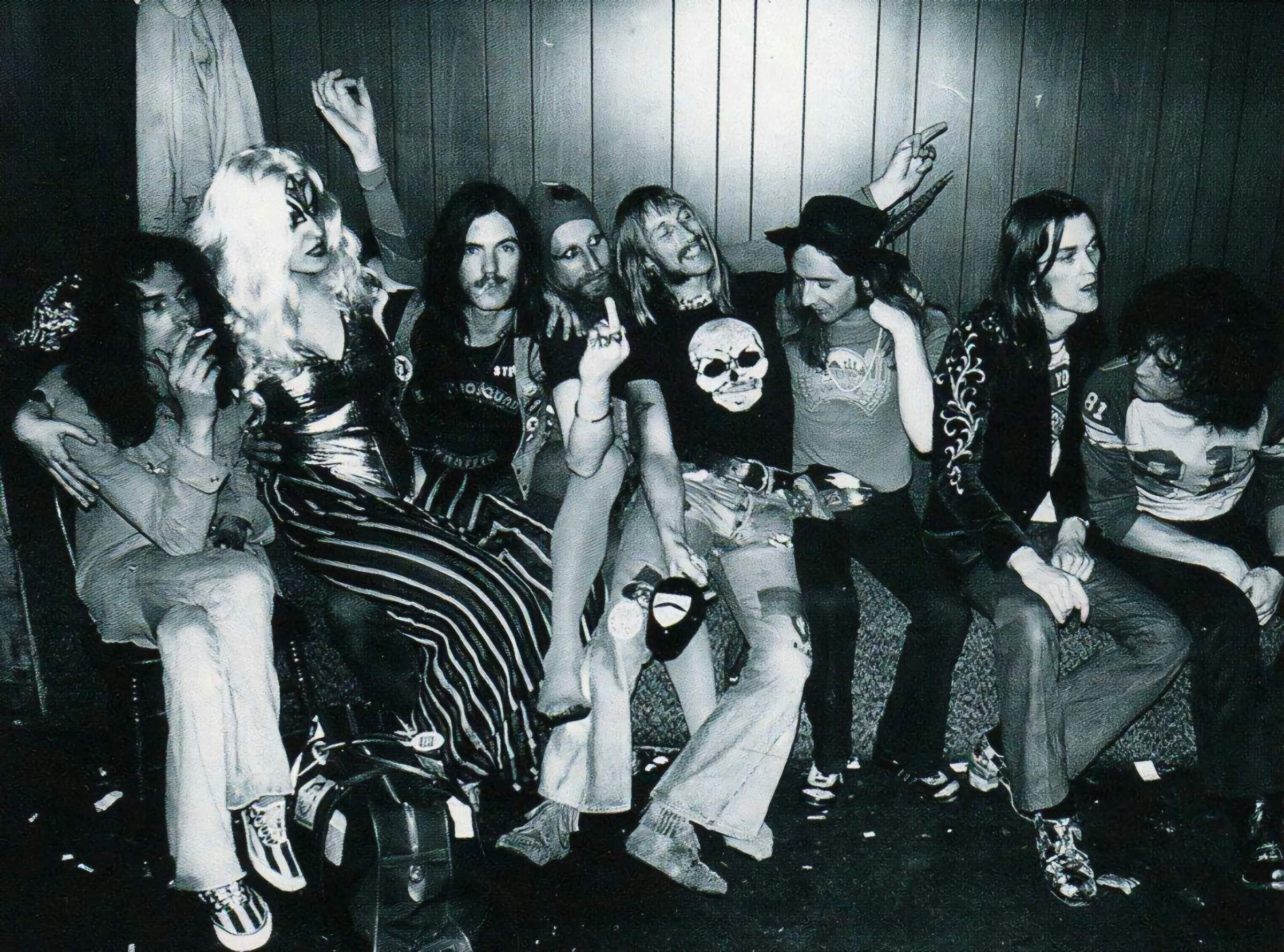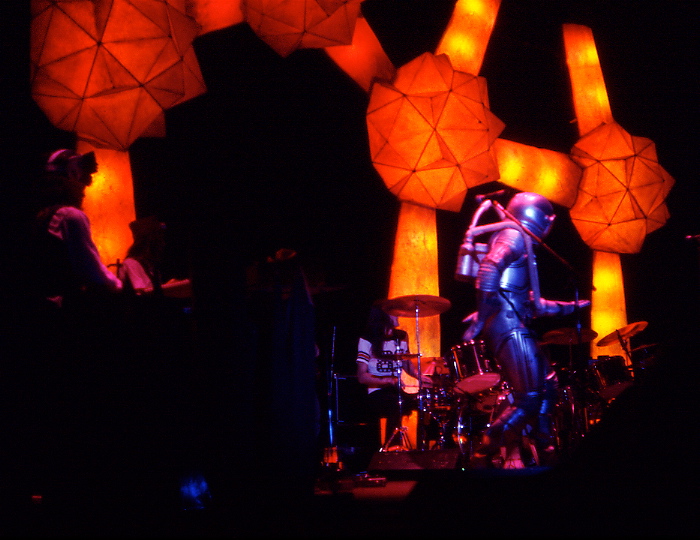Simon Magnus | Interview | Lost Heavy Prog from Ohio
‘Fast as Lightning’ by Cincinnati, Ohio based Simon Magnus was released in 1983. This rare record consists of eight tracks leaning to the hard rock/metal side of progressive rock.
The band was singed with Matmi Records and only a limited amount of records were pressed. Members that recorded ‘Fast as Lightning’ consisted of Duke Jackson (guitars/vocals), Michael Metzger (bass/vocals), Clinton Garcia (piano/keyboards/synthesizers) and Wayne Jackson (drums/percussion).
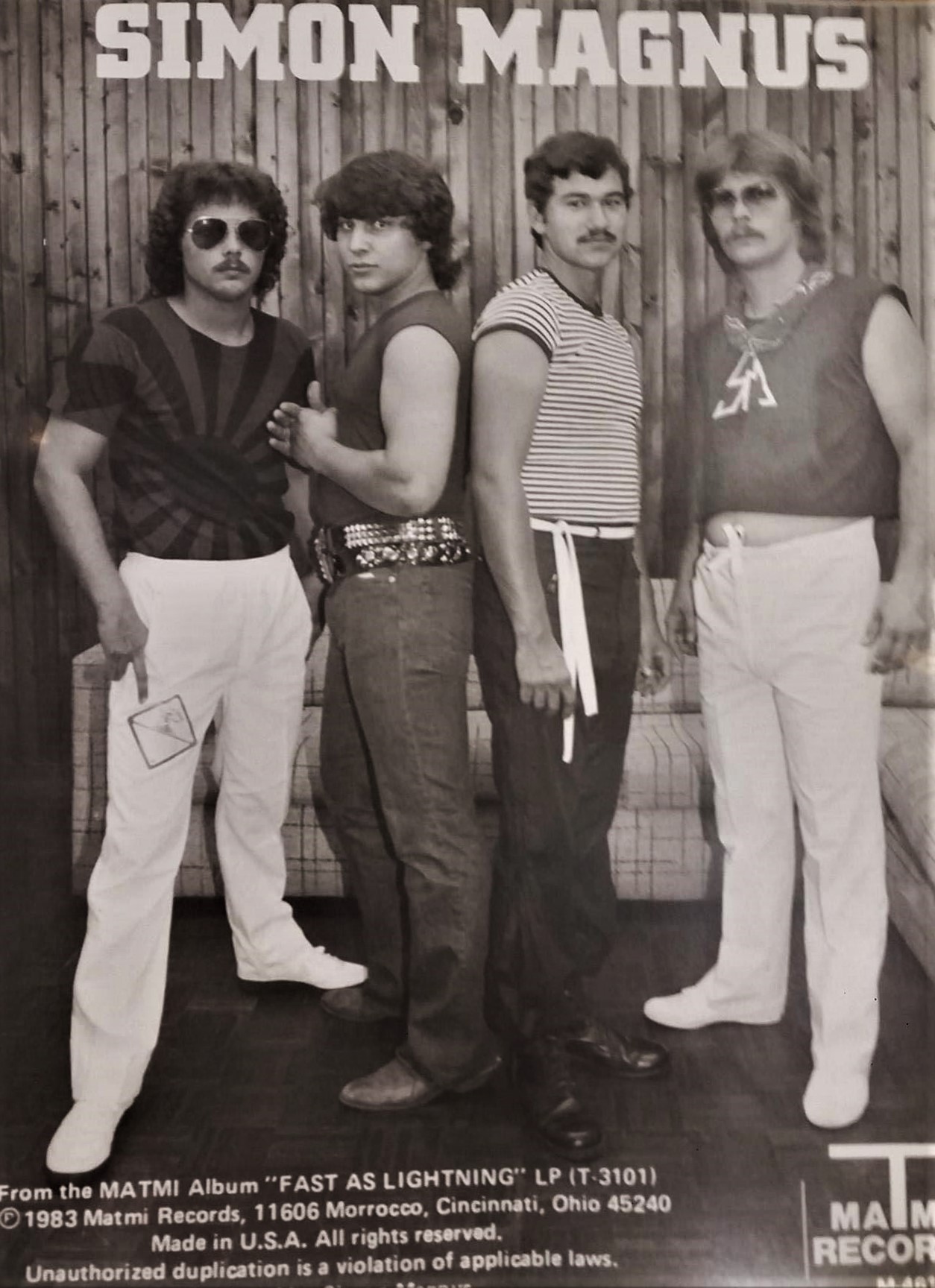
Would you like to talk a bit about your background?
Michael Metzger: Hello Klemen, and thanks for the opportunity to speak with you. I was born in Northern Kentucky, just south of Cincinnati, Ohio. The 5th of 6 children, I had a very independent childhood which led me to develop several lifelong interests, one of which was music. My parents were products of The Great Depression, so I was expected to earn whatever I wanted in life. I believe it was this expectation that drove me and my siblings to excel in our chosen endeavors. After the band broke up, I served a short stint in the US Navy, played minor league football for a dozen years, and wrote a couple fantasy novels. I continued to write music and play locally, but I never attempted to record anything until recently.
Were you all based in Cincinnati, Ohio?
Yes, three of us lived in Northern KY, the Jackson brothers [Duke and Wayne] and I, while Clint [Clinton Garcia] lived across the river in Ohio.
When did you begin playing music? What was your first instrument? Who were your major influences?
I began playing piano at age 6. All the kids in the family did. My grandmother was a graduate of the Cincinnati Conservatory of Music, and both my parents felt it was an important part of growing up. Though the instrument is lovely, it wasn’t for me. Somewhere around 12 years old I convinced my parents to let me switch to playing guitar. They agreed with one condition, that I buy the guitar with my own money. I was ecstatic! I spent the next few months cutting yards and doing odd jobs, until I saved up enough money to make the purchase. But when I went to the local music store, the salesmen rightfully steered me away from the piece of junk I could afford, toward an Odessa acoustic. My mother, God bless her soul, made up the difference and never told anyone. I wrote all my contributions to the album on that guitar. As I began to grow proficient with my new guitar, I found myself more and more connected to the bass lines of a song. The unique symbiotic relationship it had with the percussion section, and how they drove the song in whatever direction it was going. To say that my parents were not amused when I told them I was switching to bass guitar a year later is an understatement. But several dozen yards and odd jobs later I bought my first bass guitar and amplifier. It was a Hondo II precision copy with a Stage 25-watt bass amp.
Music was a constant in my house, and thanks to my siblings and parents I was exposed to a vast library of musical influences. My earliest musical influence was Roy Clark, but vocally I was all over the place. I loved melodies and challenging vocal performances, though I drew the line at opera. Lol My largest bass influences were Geddy Lee, Danny Klein (J. Geils Band), Mike Levine (Triumph), Leon Wilkeson (Lynyrd Skynyrd), Steve Harris (Iron Maiden), Ian Hill (Judas Priest), Geezer Butler (Black Sabbath), John Paul Jones (Led Zeppelin), and Lamar Williams and Berry Oakley (The Allman Brothers). Vocally, my influences were equally diverse. I thrived on anything that was a challenge. I fell in love with the blues, and the emotion of the singers. Which can be found in a lot of hard rock and heavy metal from those days. In AC/DC’s Bon Scott I found a sound that changed the way I phrased things and approached melodies. But he’s only one of many. I have so many favorites.
What bands were you a member of prior to the formation of Simon Magnus?
Specter was my first band. We played classic rock and some folk/country. I joined Simon Magnus as a freshman in high school, though we didn’t have a name initially. I think we may have gone by a couple terrible iterations, Crimson something or another… but none of them stuck. Simon Magnus came about after a lecture in theology where he was discussed. The band before Simon Magnus was named Synaster and it consisted of Rod Allison, Jason Stewart, Jeff Stebie and me.
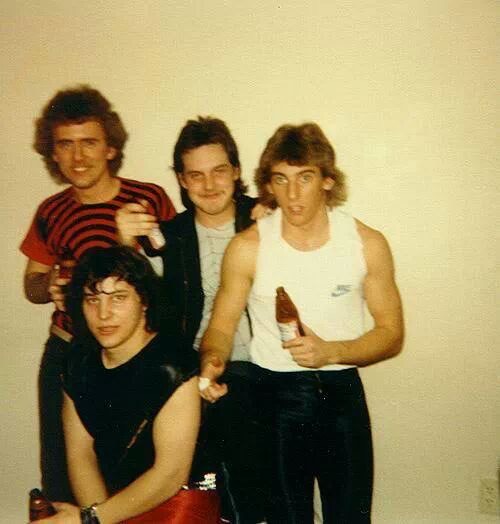
Can you elaborate on the formation of Simon Magnus?
Originally the band consisted of Bill Yung (guitarist), Tim McCay (drums), and myself. We formed in 1978. Bill and Tim were a year older and sought me out after someone heard me singing and told them I was a bassist. It was magic from the beginning. We all loved the same bands at that time, mostly heavy stuff, and I embraced the challenge of actually performing them. It wasn’t long before we realized we needed a second guitarist, and Bill found Nick Carrico in the winter of 1978. This lineup stayed together until early 1980 when Bill was forced to leave to concentrate on his studies. Instead of replacing him we decided to continue as a 3 piece. This lasted until 1981 when Tim McCay left for personal reasons and Scott Shelton took his place on the drums. As music changed, it became more and more apparent that we needed an extra guitar player to carry off some of the songs we wanted to play. This is when we added guitarist Duke Jackson. Shortly afterwards Scott left the band which led to Nick going as well. This is when Duke suggested his brother Wayne play drums. Wayne was a vast departure from my previous drummers, he was much more into progressive music and jazz. We had an instant connection.
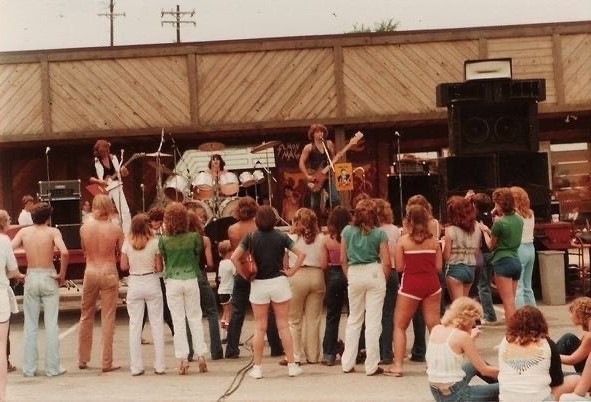
When and where did Simon Magnus play their first gig? Do you remember the first song the band played? How was the band accepted by the audience?
We played everywhere we could in the early years, typically for tips. Being juveniles and heavy metal musicians there weren’t a ton of venues that were willing to give us a chance. Our first real gig was the freshman dance at our high school in 1979. It was an epic part of deception on our part. To get the gig we learned a bunch of light rock stuff, only to replace it with Judas Priest, Led Zeppelin, Rush, and many others. The classic lineup that most people know first performed at Bogart’s in Cincinnati, Ohio in 1983
How did you decide to use the name “Simon Magnus?”
Tim McCay and Bill Yung were introduced to the story of Simon Magnus in theology class. They loved the tale and came back stoked that they found the perfect name for the band. I was less than enthusiastic initially, but it grew on me. [Laughin] And quite honestly I could never come up with anything any better. After a little while the name was widely known and accepted, so I gave the idea of changing the name up completely and embraced it.
What influenced the band’s sound?
The various backgrounds of each of us played a huge part. We were very diverse in our interests. Duke brought two songs to the album. The title track ‘Fast as Lightning’ and ‘Tomorrows Dream,’ which he sings lead on. I wrote the basic music for the rest of the tracks, but the band arranged and added little things that made it work. We initially signed as a three piece, but our record company and manager wanted to add another player. Duke didn’t want another guitarist, so a keyboard player was suggested. As luck would have it Wayne knew Clint Garcia and he was quickly added.
What’s the story behind making ‘Fast as Lightning’, your only album? Was it self-released? If so, how many copies were made and where did you press them?
No, we signed a multi-year/record deal with Matmi Records, and I honestly don’t remember how many records were in the initial pressing. I know that their interest was developing us and selling us to a larger label.
What did the distribution look like? Did you send it to radios and labels or did you only sell it via gigs?
Yes we aggressively sent the album all across America. It’s possible that the label sent it abroad as well, I don’t think any of us truly know.
Where did you record it? What kind of equipment did you use and who was the producer? How many hours did you spend in the studio?
The album was recorded at Group Effort Studios, which was state of the art at the time. Though some of the guys had done some session work, it was my first time in a real studio, so I was probably a little naïve about the process. I remember that we were extremely prepared, and could play the songs flawlessly, but due to recording issues we had to do hours of retakes. I remember being made to dumb down my bass parts by the producer and even changing my key on a vocal. It was a bad experience [laughing], but I’m proud of the work I did. Some of my vocals are hard for me to listen to. The phrasing, the tone, the melodies, they were all altered slightly here and there and kind of lost some of the edge we maintained in our live performances. It was released on a small label owned in part by our manager, Ted Atkins. It was mastered at Queen City in Cincinnati.
Please share your recollections of the sessions. What were the influences and inspirations for the songs recorded?
Looking back, we recorded on a shoe-string budget. Our hours were always late at night, and basically the hours that they couldn’t sell for full price [laughing]. Every night we would have to work for hours just to get the equipment ready for us. Things got a little easier once we were doing our individual tracks. I remember having a bad sinus infection for half of the record and worried about being able to perform. Which led to me struggling a few times. Get out is a perfect example of that.
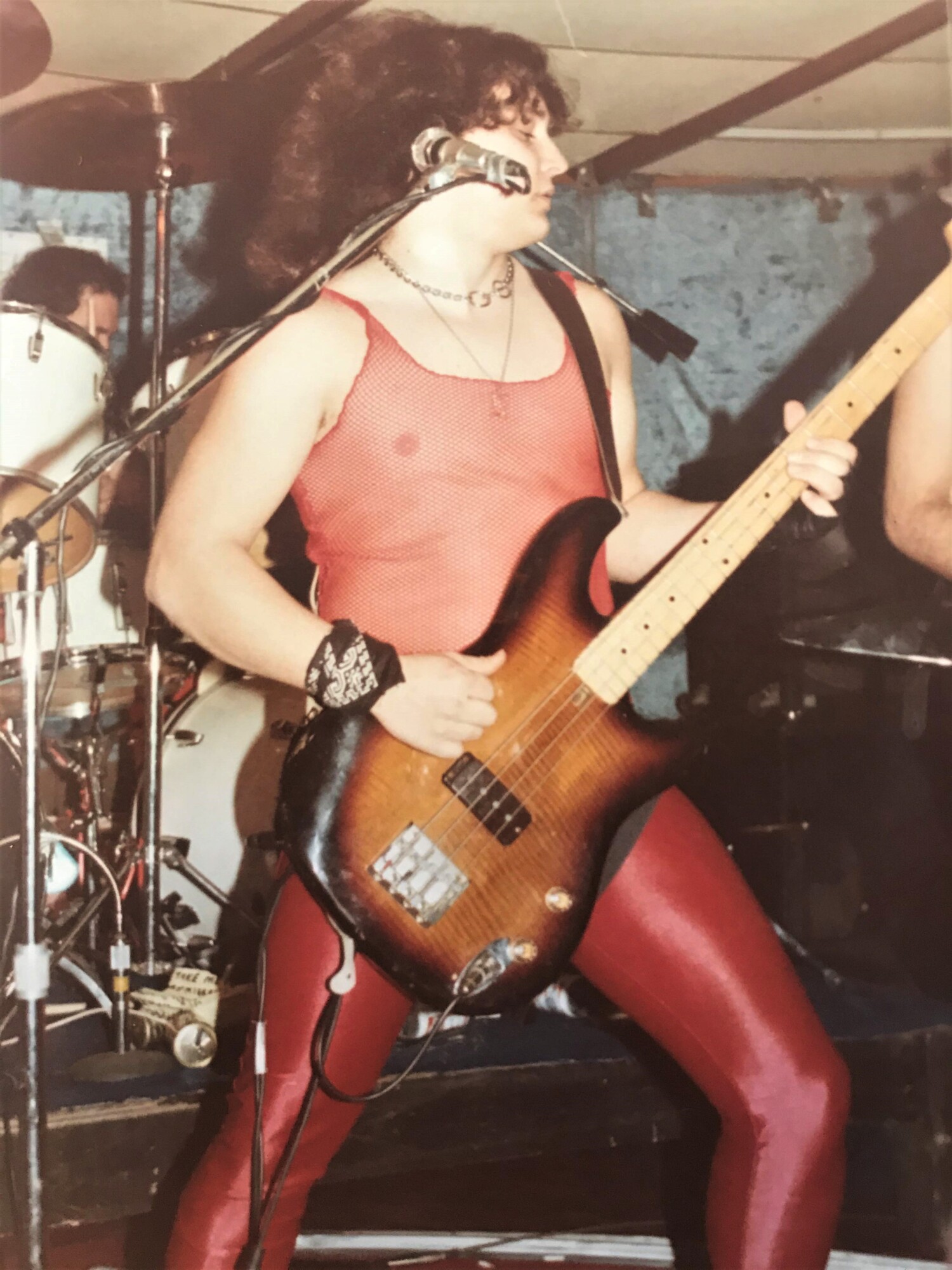
Would you share your insight on the albums’ tracks?
As I said earlier, Duke brought his songs in, and I basically brought the others before the three of us finished arraigning them. When Clint came aboard he basically added his take on what we had started. In some cases, those contributions were huge and song changing. As a young man most of my lyrics were less than adequate, but luckily Wayne considered himself somewhat of a wordsmith and re-wrote quite a few. ‘White Knight’ is one where I had a totally different take on it and he came up with the anti-drug theme we used. ‘Heartbreak’ was a constant theme in a lot of my early work. The emotions of those situations drove me to create some pretty nice music. On ‘Get Out’ however, those lyrics described one of the other guy’s situations, and their feelings on the subject. What they would like to say but didn’t [laughing]. ‘Take Me Away’ was about a guy who had a crush on a girl but was reluctant to act. We tried to write the songs to let the listener interpret the lyrics as much as possible.
What does the cover artwork represent and who is behind it?
That was done by a guy who was a fan of the band. He was a huge supporter of what we were doing. I’m not sure I ever was 100 % in love with the cover, but we didn’t have any better submissions before the deadline came. A deadline that I knew nothing about until the last minute. Duke was very enthusiastic about the idea, and I believe worked with the artist who created it.
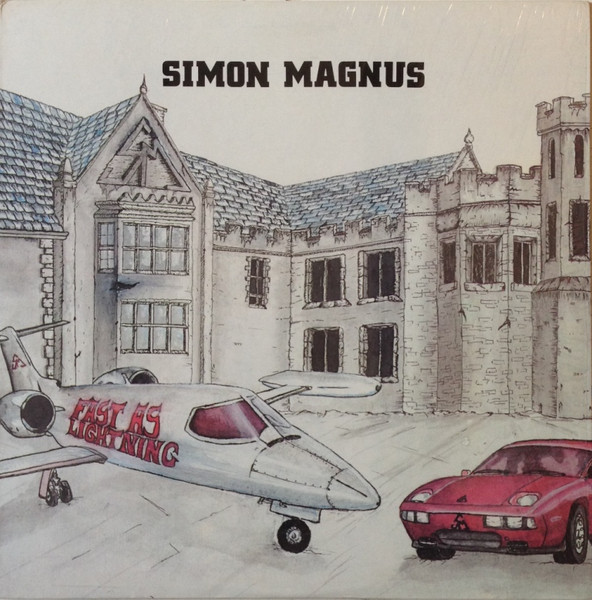
How pleased was the band with the sound of the album? What, if anything, would you like to have been different from the finished product?
Oh, to be young again and do it over. That would have been wonderful. But we are left with what we did and I am proud of it. I think we all are. I don’t care how far forward the keyboards are on several songs, but that’s probably just me. I’m more guitar oriented and the songs were written for a guitar to carry them.
Was there a certain concept behind the album?
No, we tried to steer clear of that. Rush may be able to get away with that, or Pink Floyd, but for us it was impractical.
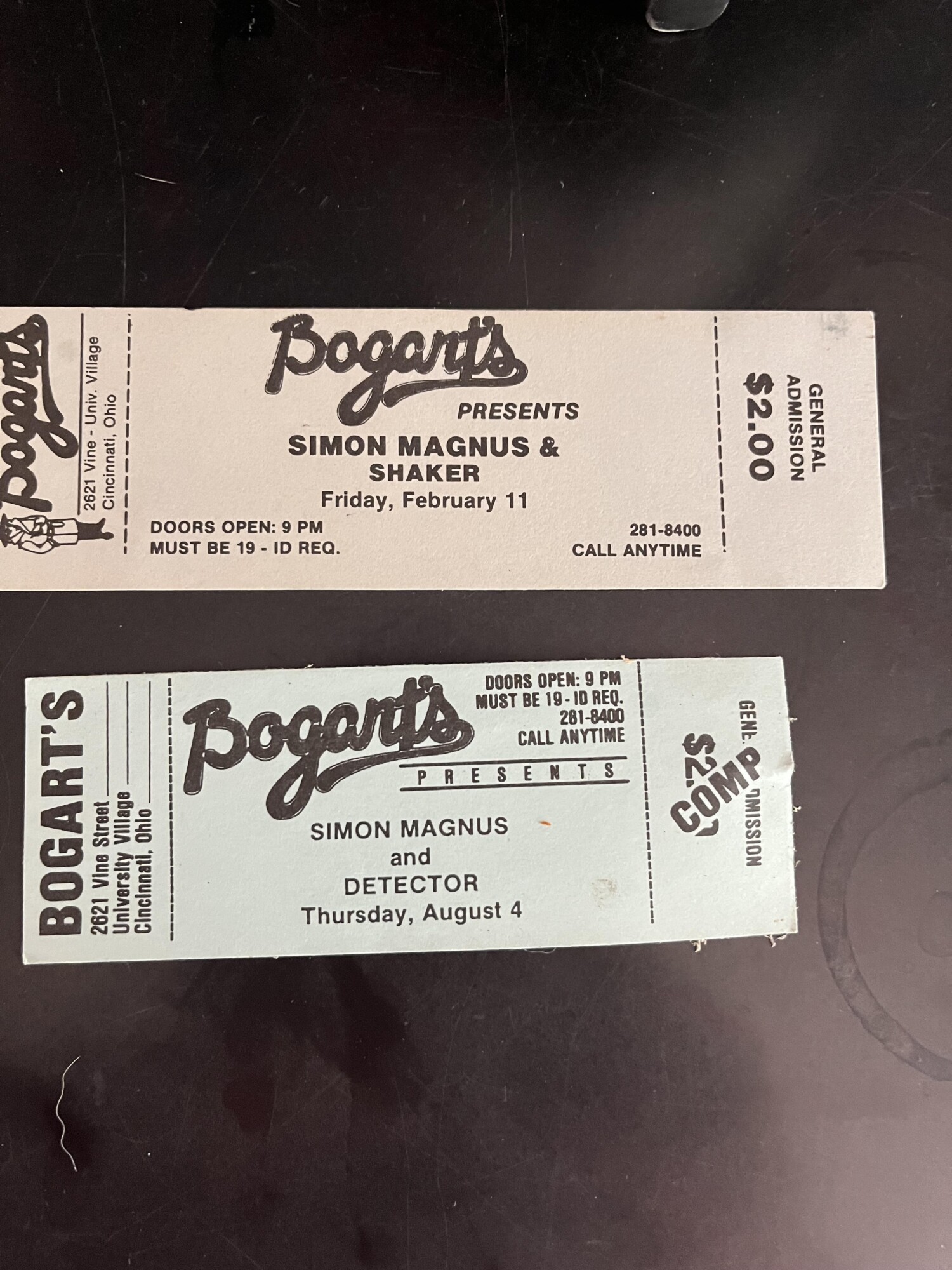
“…we were getting ready to record our second album”
What happened after the band stopped? Were you still in touch with other members? Is any member still involved with the music?
The nature of our breakup was very sad. Most bands breakup because of disagreements between themselves. Ours was with management. We discovered they were doing some shady things around the time we were getting ready to record our second album. It was a very tense time, and money was involved. That contract we had signed was unfortunately very solid, so there was no way to get out of it and the label and management weren’t interested in renegotiating. They promised to take us to court if we didn’t comply. As a group the four of us decided to disband instead of continuing. We couldn’t trust them.
Looking back, what was the highlight of your time in the band? Which songs are you most proud of? Where and when was your most memorable gig?
My favorite night was our album release show. Playing to a packed audience that came to hear our songs was incredible. ‘Borrowed Time’ is probably my favorite, I still think that holds up today. It is probably the one they least changed my bass lines on and is a bit challenging.
Is there any unreleased material by Simon Magnus?
Yes, we had the material for our second album ready to go. It was light years above the previous release. Our first album didn’t have a cohesive direction in my opinion. Partly because of the way the record company controlled things, and partly because we wrote those songs without Clint Garcia. The second album’s material was a true collaboration from start to finish, and we created a unique sound in the process. I wish we would have completed it before disbanding in hindsight, but several of the guys were adamant about not working with Ted Atkins any longer.
Are any of you involved in any other bands or do you have any active side-projects going on at this point?
Yes, I’ve stayed active over the years, and continue to play bass, guitar and bass pedals as well. My current band is called Street Corner Saint’s and we hope to release it by the end of 2023.
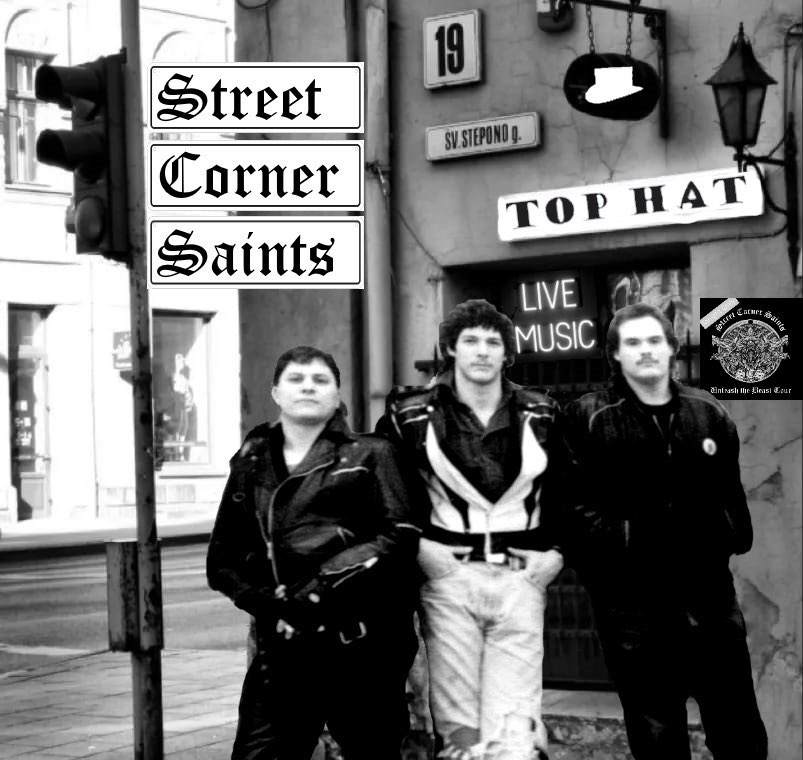
What are some of the most important players that influenced your own style and what in particular did they employ in their playing that you liked?
There are so many, Geddy Lee, Mike Levine, Steve Harris, and Geezer Butler are probably at the top. And at least one of those surprises me because I never knew how much until I started deep diving into their licks. This new project I’m doing has caused me to do quite a bit of self-reflection. I tend not to play solid lines. I insert a ton of runs to enhance most songs I’m playing. Sometimes those runs are simple, and sometimes not. I let the song speak to me and play accordingly.
I always thought my singing and playing were just impersonations of the greats, but I’ve found I truly do and did have my own style. Vocally, Rob Halford, Klaus Meine, Robert Plant, Rik Emmit, the list goes on and on. I had a four and a half octave range back then, so my tastes were varied. It’s so very hard to cite them all. I liked to dabble in multiple genres, and I would draw inspiration from all of them.
On the album I play an Ibanez Roadster, one of the old sunburst precision body style models from 1979. Today I play an Ibanez Roadstar RB800 exclusively, except for songs that require me to use my double neck 4/6. The RB800 is a rare model that was only produced for about 6-9 months in 1987.
Let’s end this interview with some of your favorite albums. Have you found something new lately you would like to recommend to our readers?
This is tough. I tried to do it once before and I ended up listing 50 different artists. Rush – ‘2112,’ Judas Priest – ‘Unleashed in the East,’ Led Zeppelin – ‘The Song Remains the Same, Van Halen, Iron Maiden – ‘Powerslave,’ Mötley Crüe – ‘Shout at the Devil,’ Scorpions – ‘Animal Magnetism,’ Ozzy Osbourne – ‘Blizzard of Ozz’, Dio, to name a few that are always on my list and helped to shape me. I love some of the new music as well. I’m not into death metal, but to each his own.
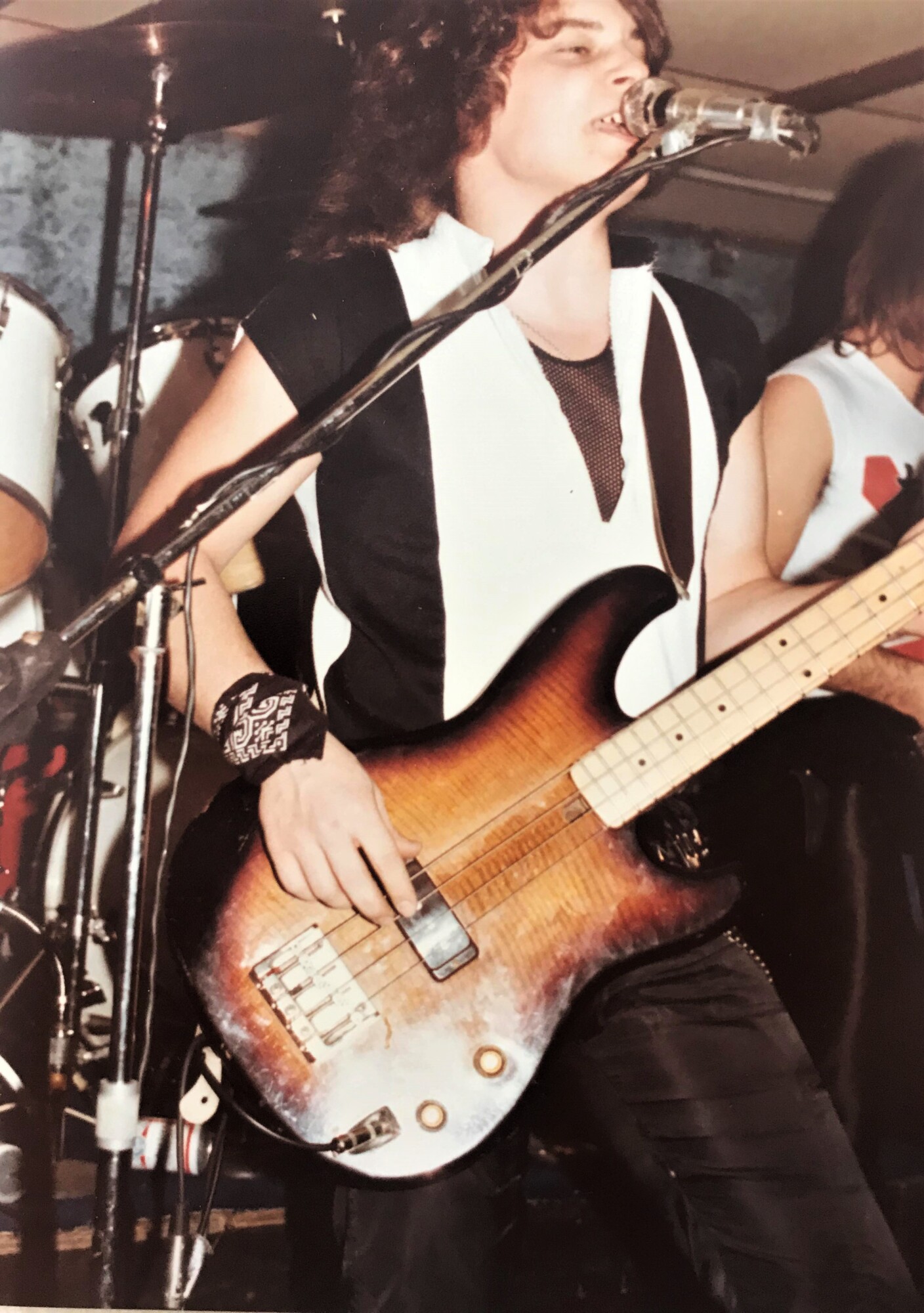
Thank you for taking your time. Last word is yours.
I Just want to thank you for the opportunity to talk about the band. I miss those guys and would love to see them again. It would be great to do another project as well. I know Duke has kept active, so who knows what the future holds.
Klemen Breznikar

